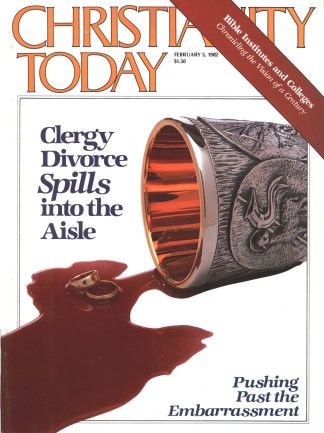When Archbishop Obando y Bravo of Managua fields tough questions about Nicaragua, he frames his answers carefully. It is now a crime in his country to criticize the government. And he is trying to keep open dialogue between himself and the ruling Cuba-backed Sandinist leaders, who have been imposing restrictions on the population to shore up their Marxist positions.
In replies to reporters and others at the recent award luncheon in Washington, D.C., of the Institute for Religion and Democracy honoring him, he:
• Warned that American attempts to isolate Nicaragua “would be dangerous” and asked the U.S. to provide “any aid that will benefit the people.”
• Took a dim view of French and other military aid, saying “peace should be supported by justice, not arms,” and noted the money could be better spent on schools, housing, and other basic needs.
• Confirmed that many Cubans occupy important government positions in Nicaragua.
• Acknowledged that some priests still hold major government posts despite a Vatican ban and ongoing church efforts to restrict their secular involvement, and asserted that Christians should not adopt Marxist-Leninist views (as some Nicaraguan Catholic clergy and lay leaders have done).
• Expressed concern over government crackdowns, but said it would be wrong to characterize the regime as totalitarian “at the present time.”
• Sidestepped a request for him to compare religious freedom under the former Somoza regime and the Sandinists, saying it was too early.
“We must preach the gospel,” he said, implying the government has a stake in maintaining religious freedom. “People’s hearts must be changed,” he said. “Otherwise injustice will always creep in.”
When the Marxist-oriented Sandinist Front for National Liberation toppled the long-corrupt Somoza regime in the summer of 1979, it was with the quiet though wary support of a broad cross section of Nicaraguan society, including the Roman Catholic church (which claimed the allegiance of most of the country’s 2.5 million citizens.).
Relationships between the new government and the Catholic hierarchy soured, however, about a year later when the Sandinists issued a policy on religion, specifying that churches should limit their activities to the religious realm. In response, the nation’s Catholic bishops warned that such a policy was a mark of totalitarian systems aimed at shutting out religious influence in “the new revolutionary structures.”
“It is not the church or Christians who are against the revolution of the Nicaraguans,” asserted the bishops, “but those who deviate ideologically against the religious feelings of our people.”
A small, unofficial group known as the Nicaragua Conference of Priests and Nuns (CONFER), active in the Sandinist government and under pressure from the hierarchy to return to full-time religious ministry, accused the bishops of dividing the revolution.
In an interview with a Mexican publication, Nicaragua’s foreign minister, Miguel D’Escoto, a Maryknoll priest and member of CONFER, labeled Archbishop Obando y Bravo—who had been a Somoza foe—as “Nicaragua’s leading counter-revolutionary.” La Prensa, Managua’s leading newspaper, picked up the story from a news service and published it. In the ensuing furor, the Sandinists closed down the newspaper for several days, and Obando y Bravo conducted a Mass for freedom of the press in the newspaper’s office.
Last June, the archbishop commented that “after two years of hope, our revolution is drifting towards Marxism according to the Cuban model.” (The archbishop is not the only church leader with such views. Moravian bishop John Wilson, a Sandinist sympathizer at the outset, also declared in June that “people have lost confidence in the revolution.” Centered on the rural Caribbean coast and largely composed of ethnic minorities, the Moravians are Nicaragua’s largest Protestant denomination. More than 5,000 reportedly have fled to Honduras.)
Obando y Bravo’s weekly telecast of a Mass was recently curtailed. The Sandinists say they want to share the airwaves with other priests and Protestant clergy. But critics claim the TV programs have been restricted to pro-Sandinist clergy.
Observers note that CONFER and its backers are establishing neighborhood groups of pro-Sandinist Catholics that the government might choose someday to recognize as the official Catholic presence in Nicaragua.










